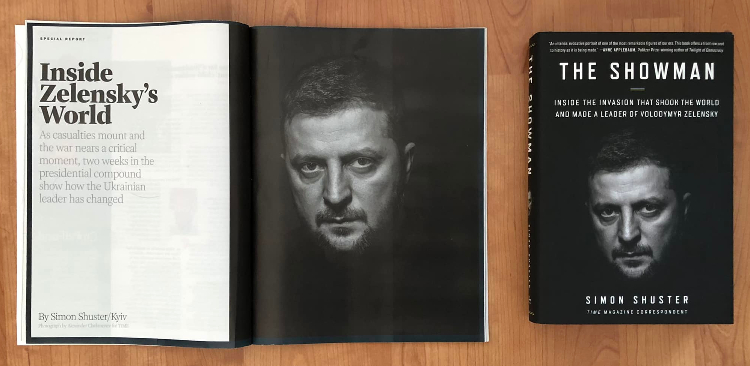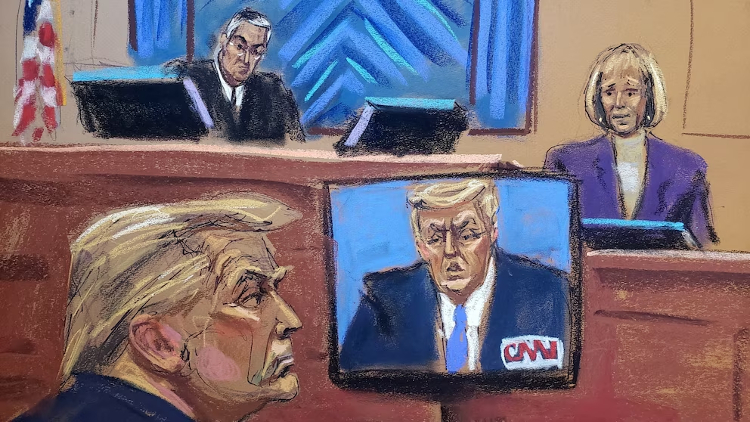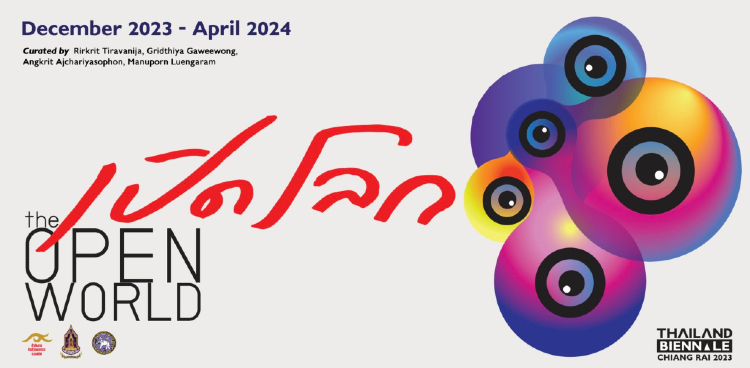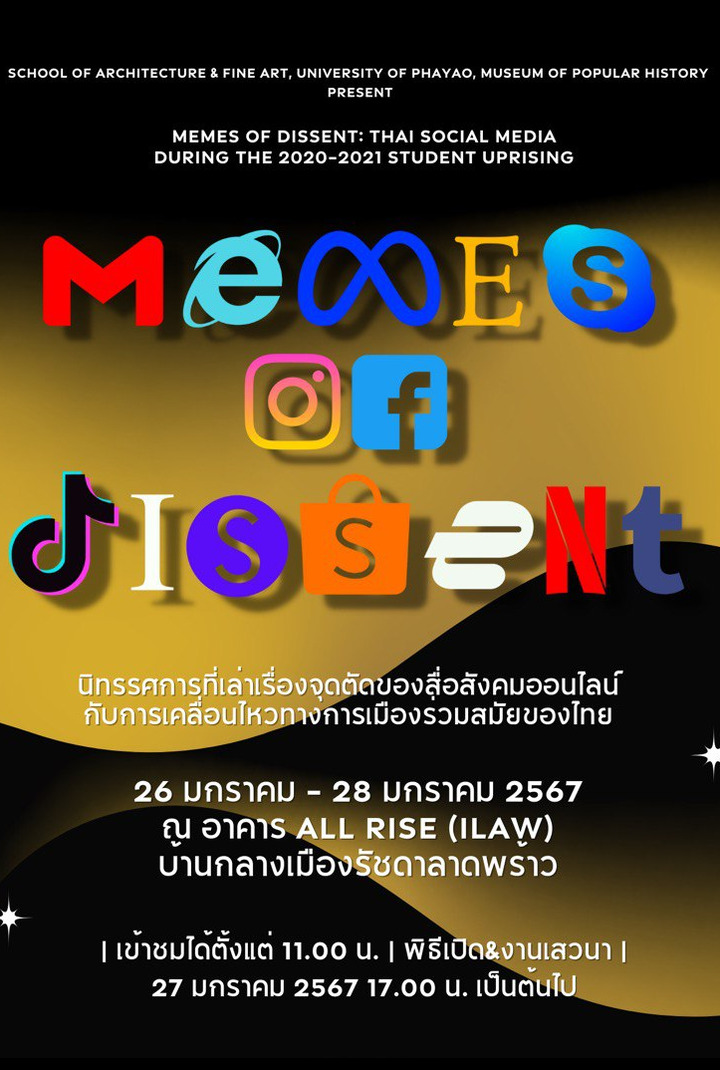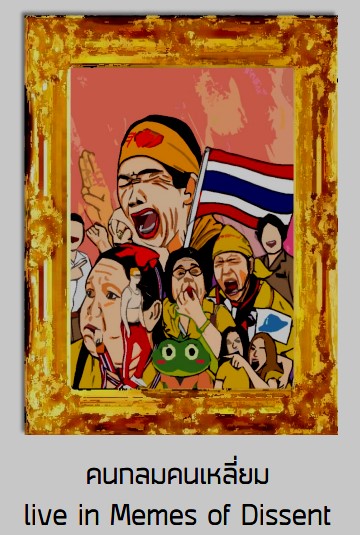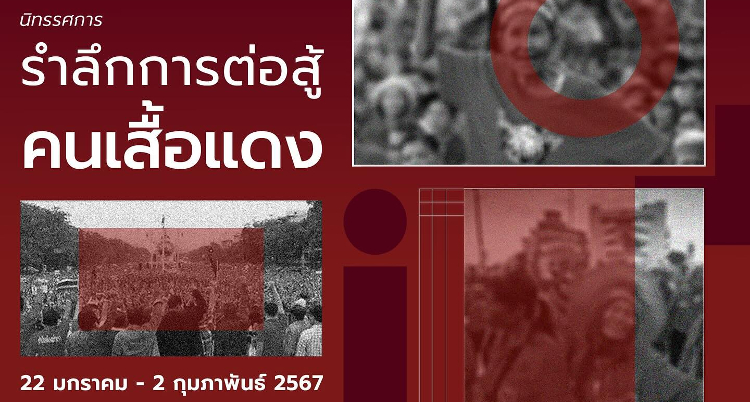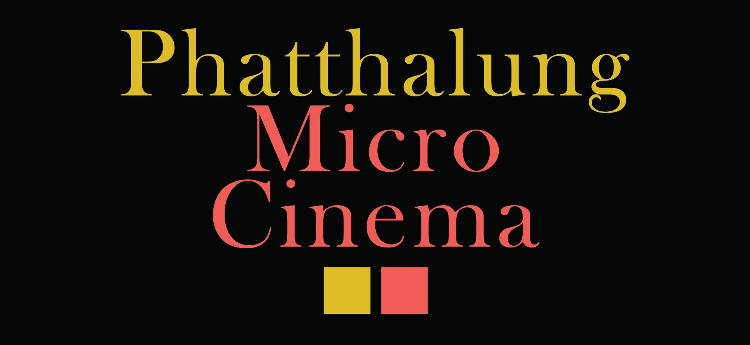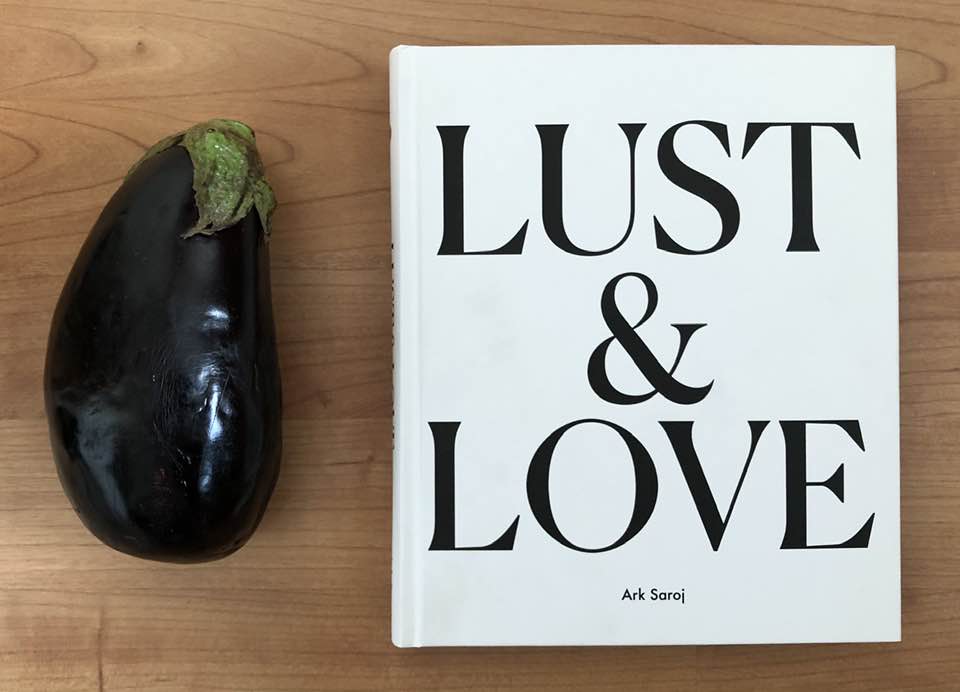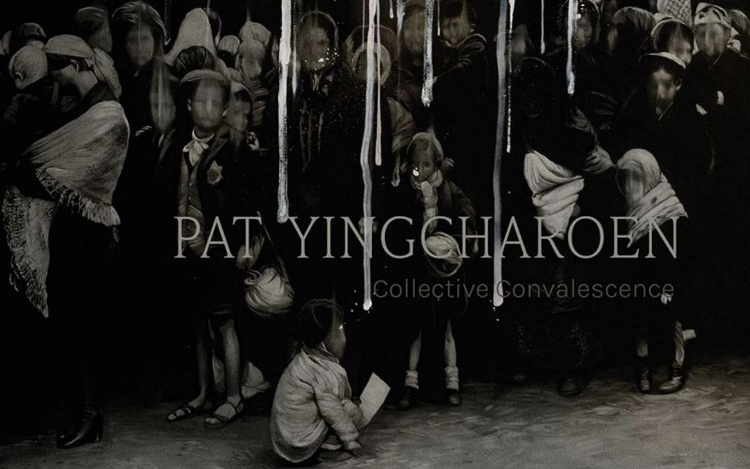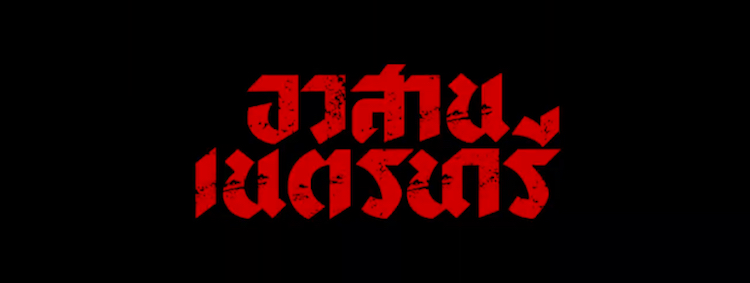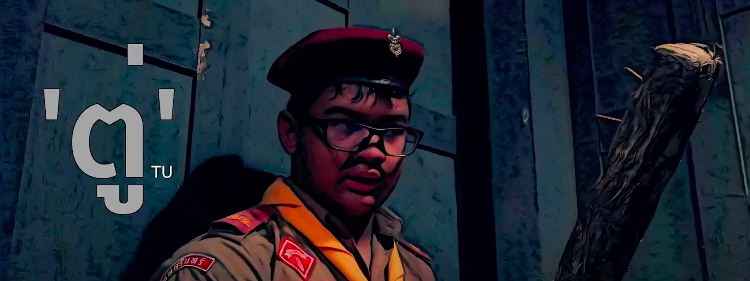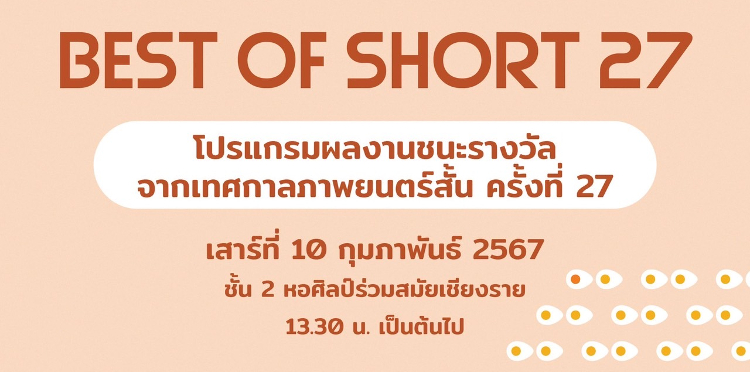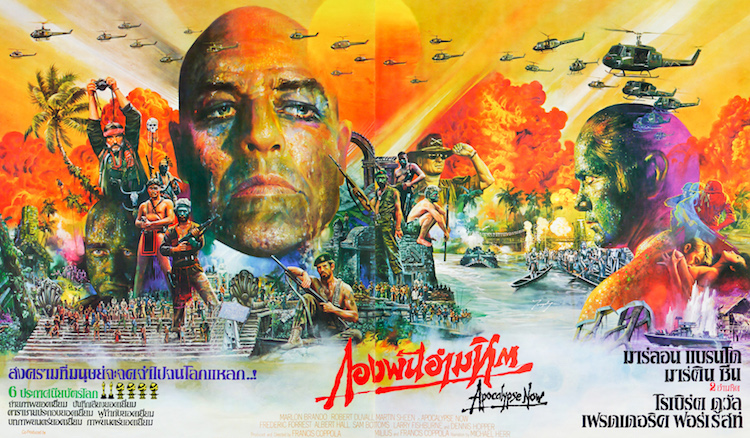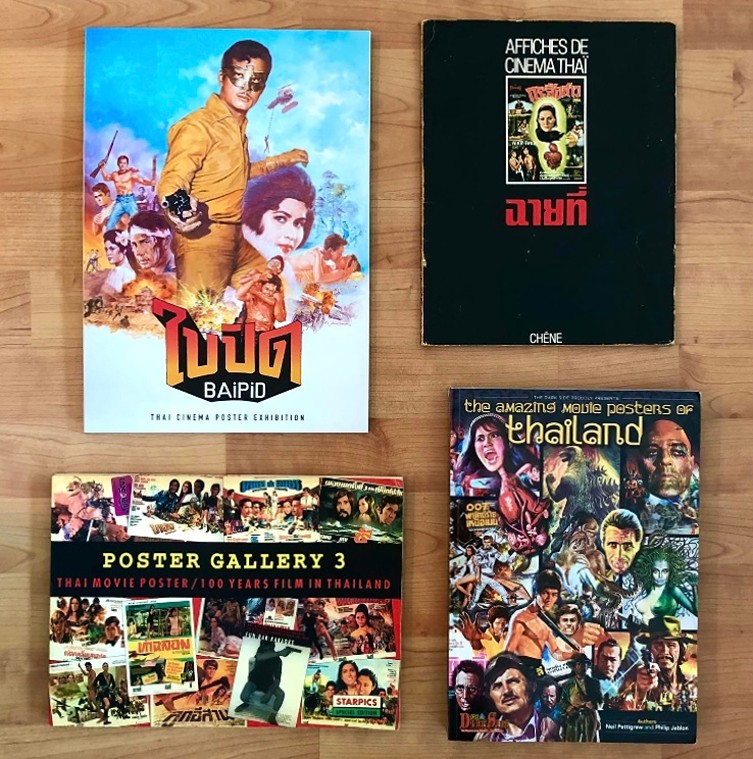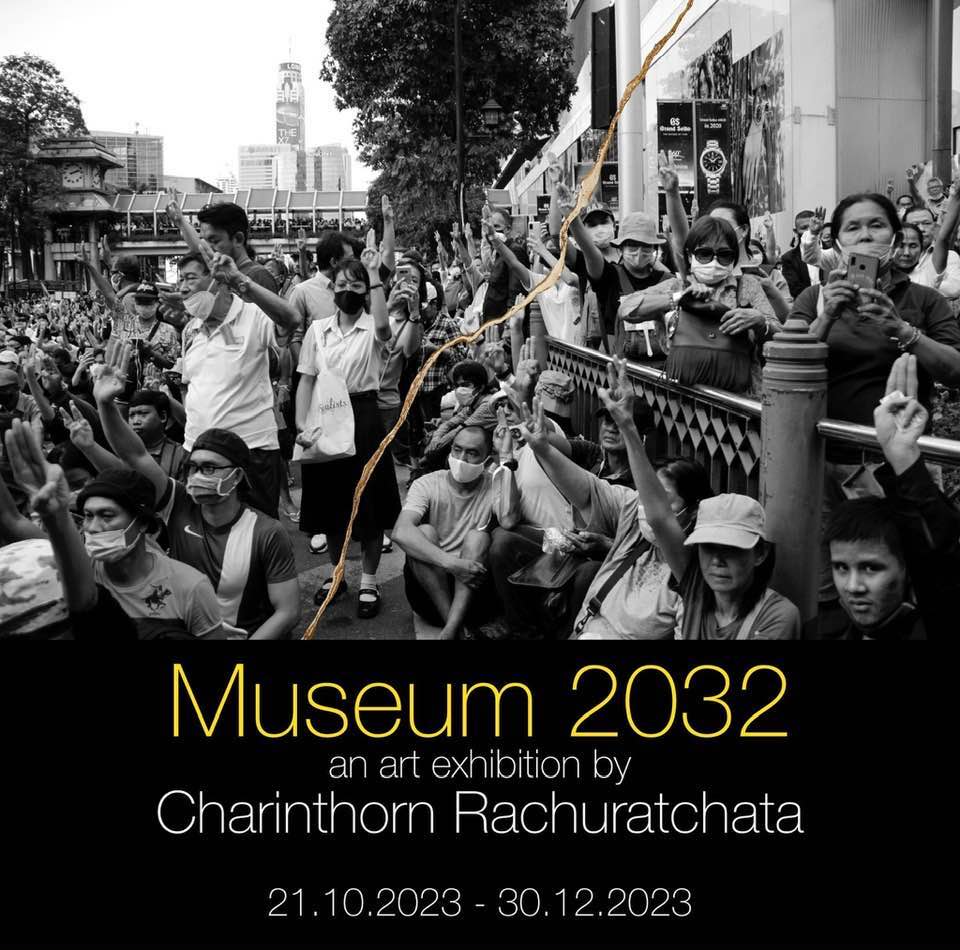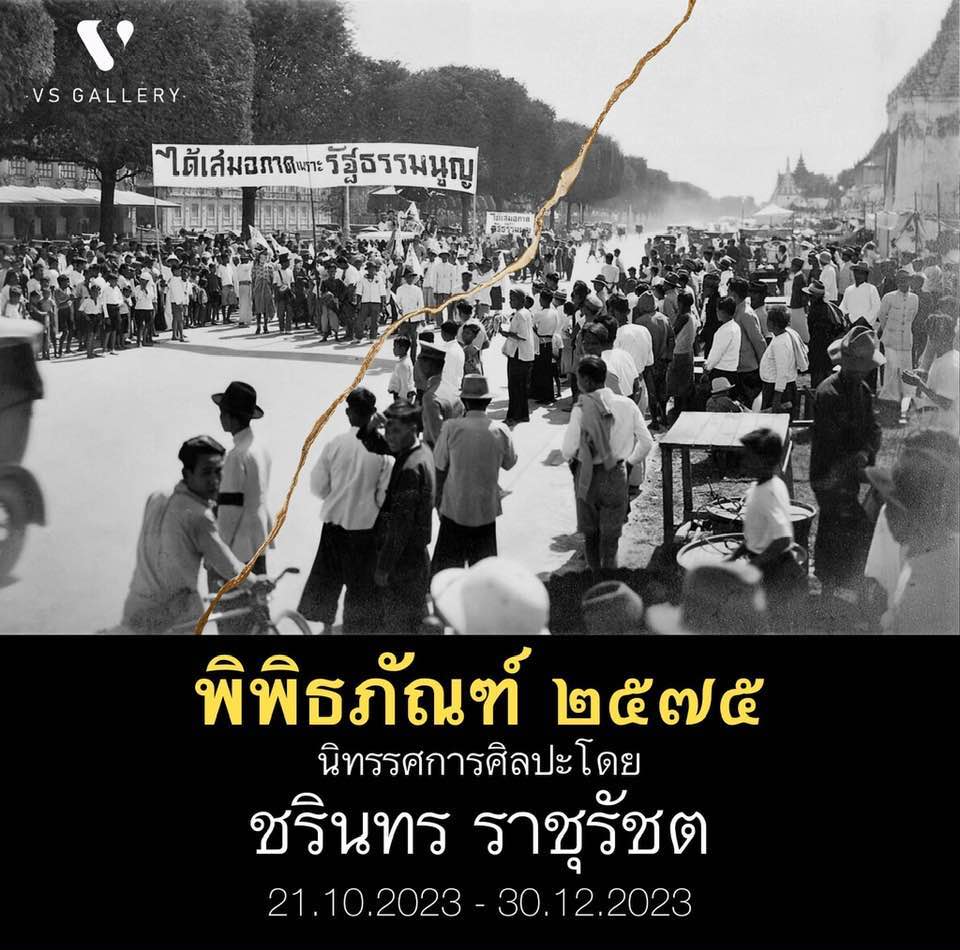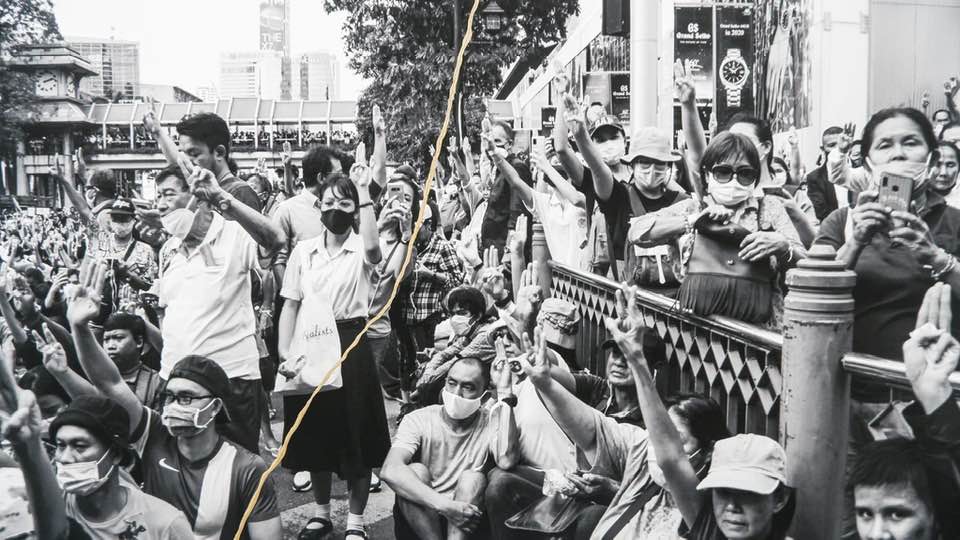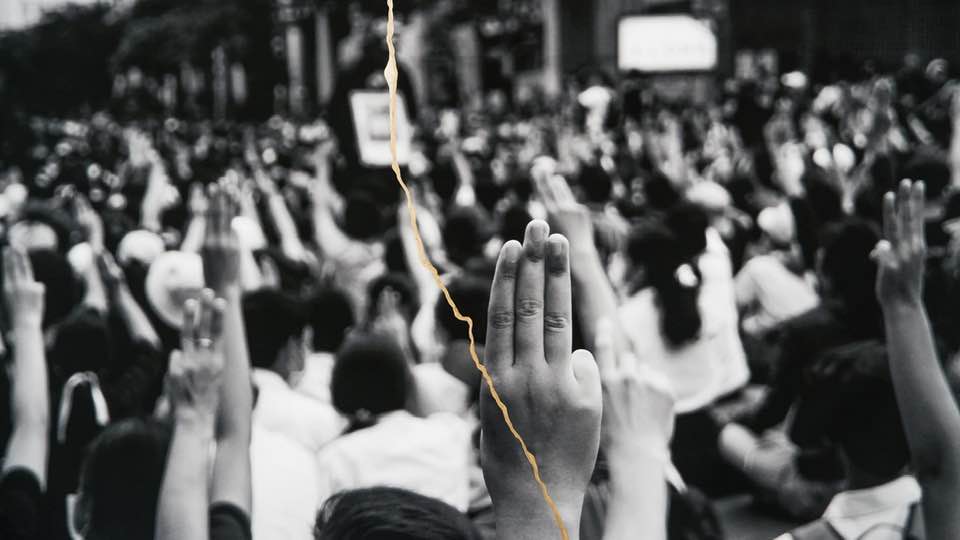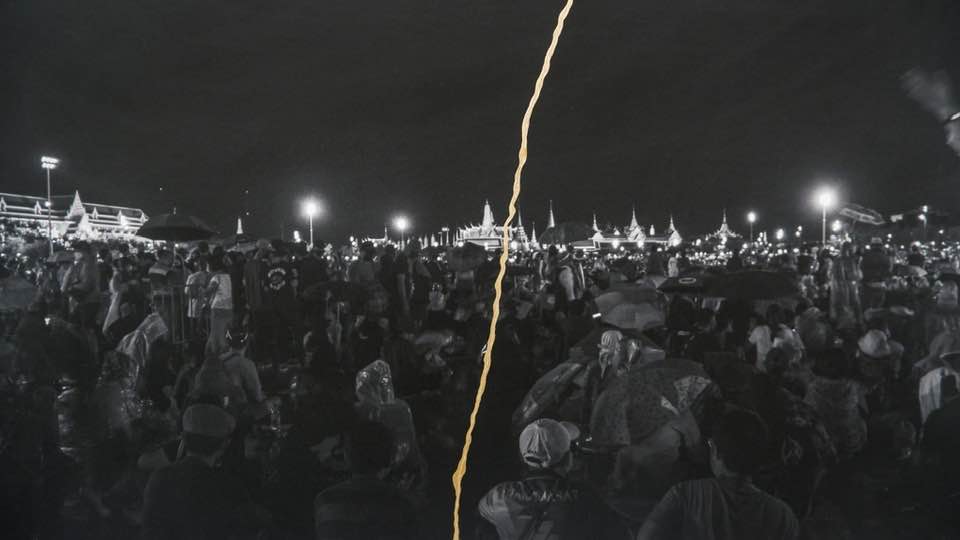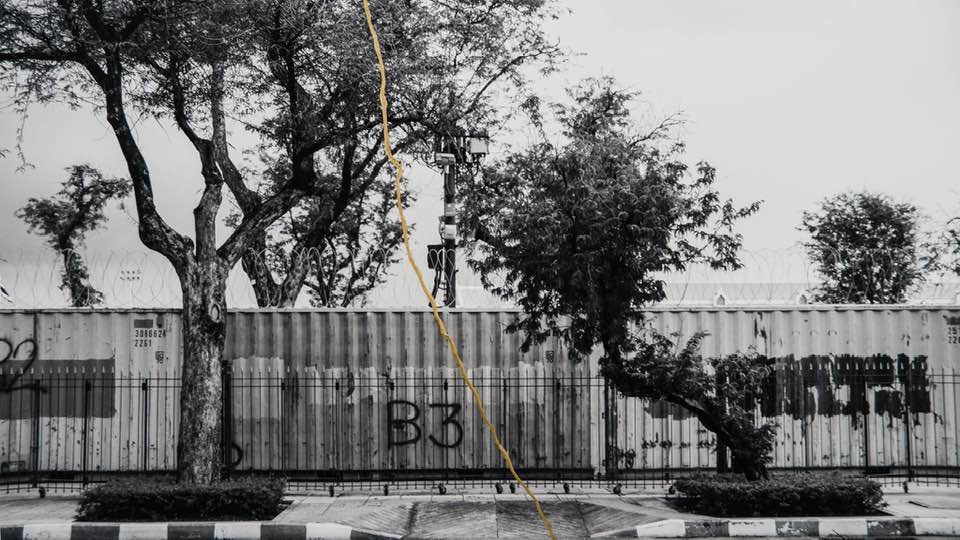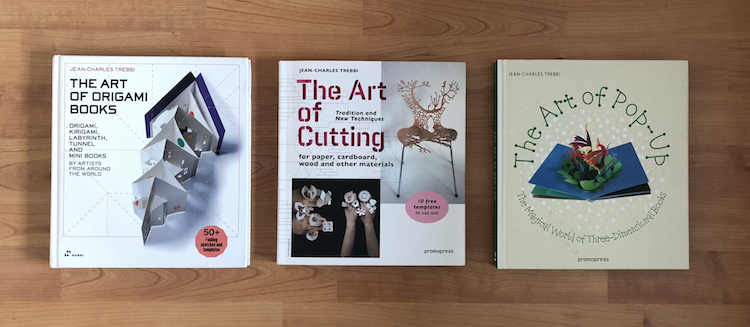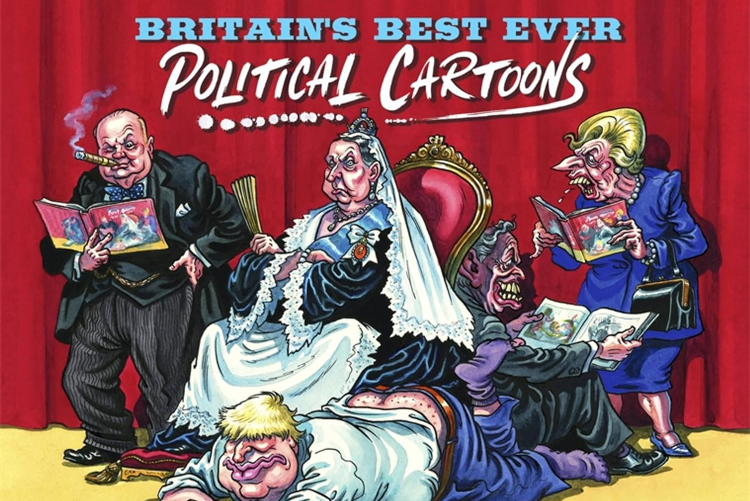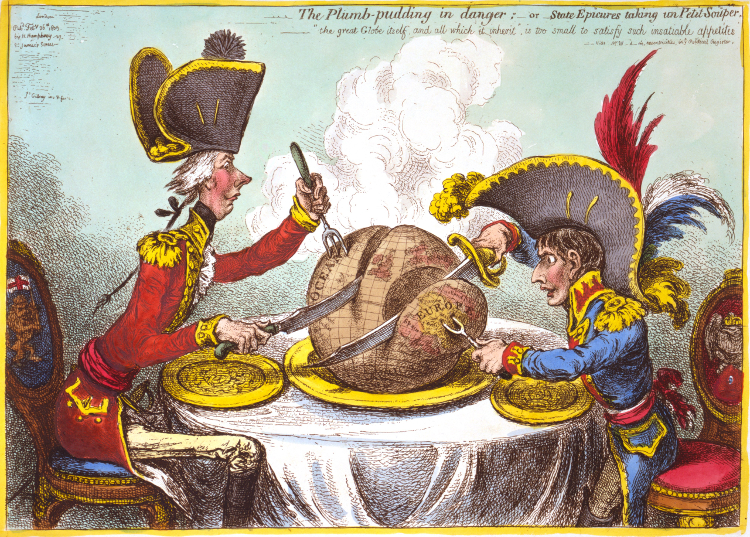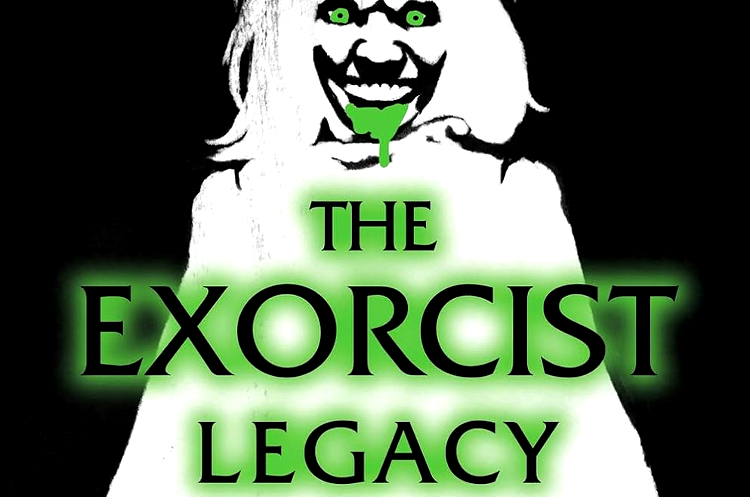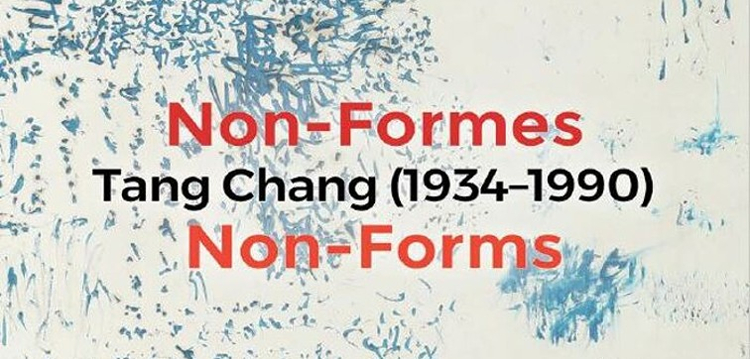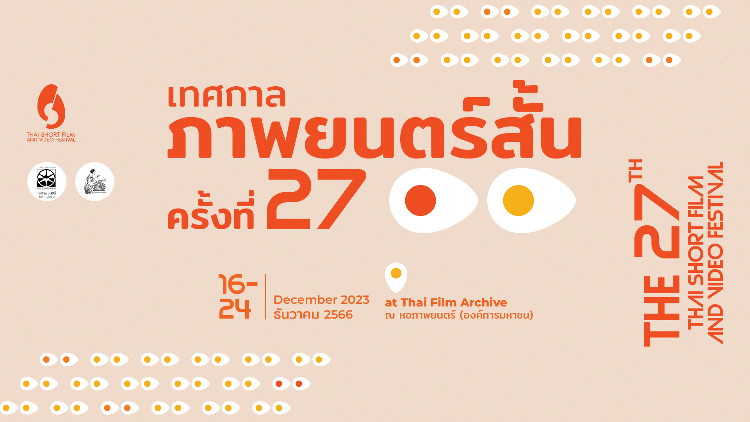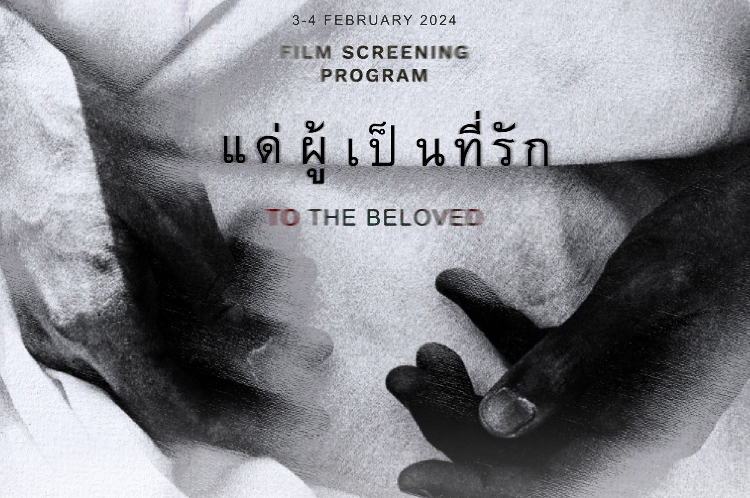
Supamok Silarak’s film Red Poetry (ความกวีสีแดง) will have an open-air screening today at Suan Anya in Chiang Mai, as part of a two-day event, To the Beloved (แด่ผู้เป็นที่รัก), in support of an amnesty for political prisoners. The documentary is a profile of performance artist Vitthaya Klangnil, who co-founded the group Artn’t. A shorter version of the film—Red Poetry: Verse 1 (เราไป ไหน ได้)—had its premiere at Wildtype 2022.
Red Poetry shows the intense endurance and commitment Vitthaya invests in his protest art. A durational performance—sitting near Chiang Mai’s Tha Pae Gate for nine full days—led to his collapse from exhaustion. In another action, he climbed onto Chiang Mai University’s main entrance, repeatedly slapped himself in the face, and jumped into a pond. Before reporting to the police to answer charges of sedition, he vomited blue paint outside the police station.
The film ends with Vitthaya’s most extreme action: he carved “112” into his chest, in protest at the lèse-majesté (article 112) charges he faced after exhibiting a modified version of the Thai flag in 2021. He was convicted of lèse-majesté last year, and received a suspended sentence.
Red Poetry was also shown at Suan Anya last year. It has since been screened at Chiang Mai University, and in Salaya. It was screened three times as part of the 27th Short Film and Video Festival (เทศกาลภาพยนตร์สั้นครั้งที่ 27): in the online Short Film Marathon (หนังสั้นมาราธอน), at the main festival itself, and in the Short 27 Awarded Film Screening programme.
To the Beloved concludes tomorrow with a programme of short films, including the heartbreaking Red’s Scar (บาดแผลสีแดง), in which Nutcha Tantivitayapitak interviews a protester falsely accused of arson following the 2010 massacre. Tragically, the man’s mother and son both died while he was in jail. Red’s Scar was first shown at Wildtype 2022.
Red Poetry shows the intense endurance and commitment Vitthaya invests in his protest art. A durational performance—sitting near Chiang Mai’s Tha Pae Gate for nine full days—led to his collapse from exhaustion. In another action, he climbed onto Chiang Mai University’s main entrance, repeatedly slapped himself in the face, and jumped into a pond. Before reporting to the police to answer charges of sedition, he vomited blue paint outside the police station.
The film ends with Vitthaya’s most extreme action: he carved “112” into his chest, in protest at the lèse-majesté (article 112) charges he faced after exhibiting a modified version of the Thai flag in 2021. He was convicted of lèse-majesté last year, and received a suspended sentence.
Red Poetry was also shown at Suan Anya last year. It has since been screened at Chiang Mai University, and in Salaya. It was screened three times as part of the 27th Short Film and Video Festival (เทศกาลภาพยนตร์สั้นครั้งที่ 27): in the online Short Film Marathon (หนังสั้นมาราธอน), at the main festival itself, and in the Short 27 Awarded Film Screening programme.
To the Beloved concludes tomorrow with a programme of short films, including the heartbreaking Red’s Scar (บาดแผลสีแดง), in which Nutcha Tantivitayapitak interviews a protester falsely accused of arson following the 2010 massacre. Tragically, the man’s mother and son both died while he was in jail. Red’s Scar was first shown at Wildtype 2022.


